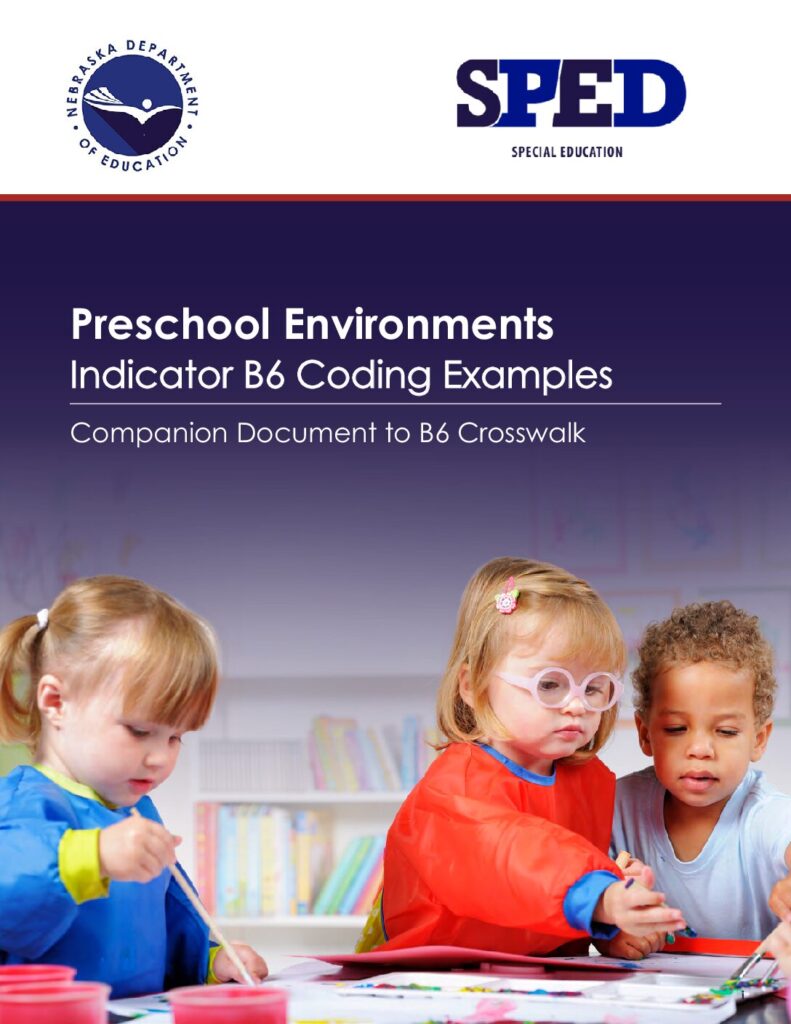Early Childhood Special Education Services
Teaching Strategies GOLD
Early Childhood Special Education Guidance
Video Series
Decision Tree for Nebraska Preschool Educational Environments

Visit the Results Matter Technical Assistance Website – HERE!
| Part B Entry | Part C Entry |
| Part B Exit | Part C Exit |
Trainings are available throughout the year to support GOLD administrators, teachers, and home visitors.
Decision Tree for Nebraska Preschool Educational Environments
The IEP process includes requirements and actions that ensure IEP teams have the information needed to discuss and consider access to and participation in high-quality inclusive settings for every young child with a disability during IEP placement discussions. These documents list important actions in the IEP development process along with guiding principles and practices that should inform placement decisions for young children with disabilities.
Guiding Questions for Discussing Services in LRE
Young children with disabilities must be given access to the early childhood programs, services, and experiences that children without disabilities have within a State or local community. These Indicators of High-Quality Inclusion are available to support in assessing and improving upon programs’ and classrooms’ inclusionary practices.
Local Program Indicators and Elements of High-Quality Inclusion
ECTA Center: Early Care and Education Environment Indicators and Elements of High-Quality Inclusion
OSEP, with the collaboration and support of the ECTA Center and DaSy Center (for Sections II and III), developed this voluntary self-assessment tool to help Local Education Agencies (LEAs) strengthen their ChildFind system with the goal of ensuring children eligible for special education and related services are referred and enrolled. This toolkit can also be used by State Education Agencies (SEAs) to look across LEAs to support understanding and documenting their work around child find regulations, identifying best practices, and improving the efficiency of their Child Find efforts.
Educational Environments Ages 3-5 – LRE Data Reporting Tool
Federal Dear Colleague Letter (DCL) related to Preschool Least Restrictive Environment (LRE) 2017
Federal Policy Statement on Expulsion and Suspension Policies In Early Childhood Settings (2016)
Federal Policy Statement on Inclusion of Children with Disabilities in Early Childhood Programs (2023)
Federal Policy Statement on Supporting the Development of Children who are Dual Language Learners in Early Childhood Programs
OSEP Memo RTI Cannot Be Used to Delay-Deny an Evaluation for Preschool (2016)
Position Statement on Multitiered System of Support Framework in Early Childhood
US DOE Non-Regulatory Guidance Early Learning in the Every Student Succeeds Act (2016)





